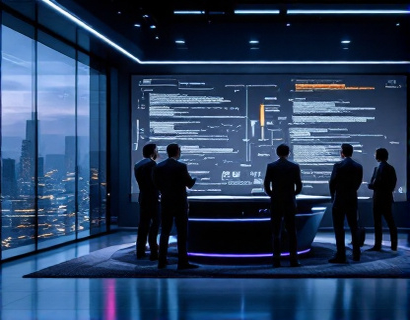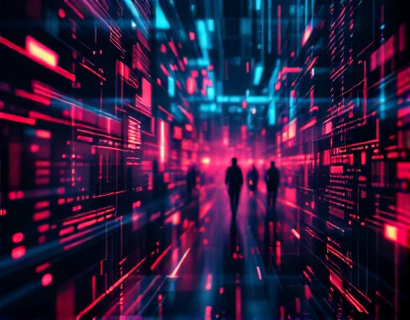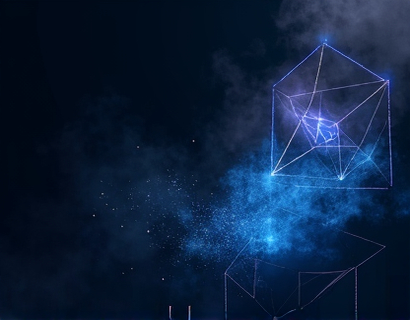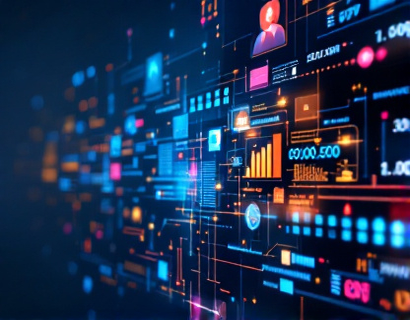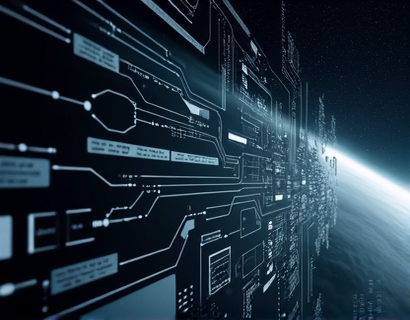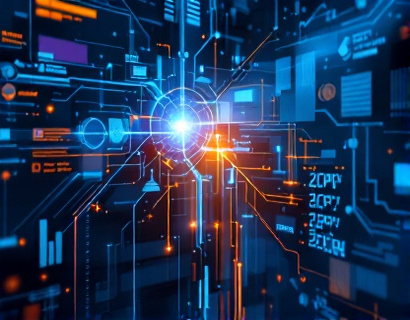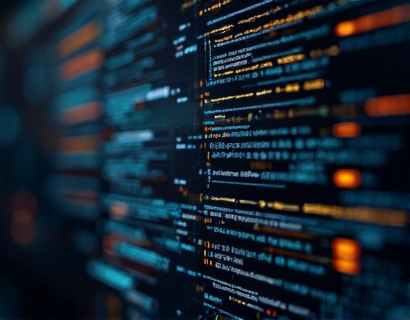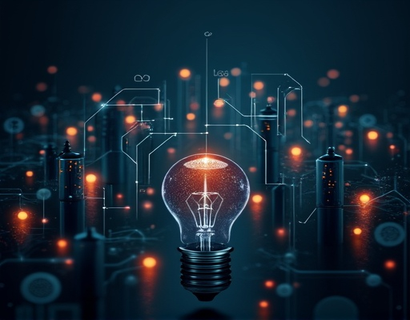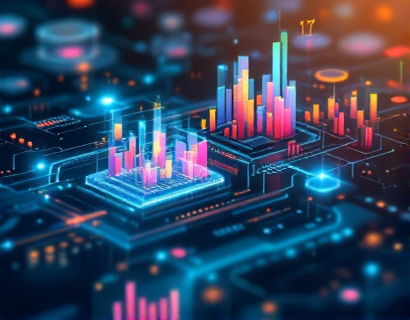Crypto-Powered Innovations: Harnessing AI for Next-Gen Ucosystem Solutions
The intersection of cryptocurrency and artificial intelligence (AI) is giving birth to a new era of technological advancements, redefining the digital landscape. This convergence, often referred to as crypto-powering or blockchain-enhanced AI, is unlocking unprecedented possibilities in various sectors, from finance and healthcare to supply chain management and beyond. This article explores the groundbreaking innovations at the forefront of this tech fusion, offering insights for tech enthusiasts and early adopters eager to understand and leverage the power of next-generation applications.
Understanding the Synergy Between Cryptocurrency and AI
The synergy between cryptocurrency and AI is rooted in their shared foundation of decentralization and data-driven decision-making. Cryptocurrencies, particularly those built on blockchain technology, provide a secure, transparent, and decentralized platform for transactions and data storage. AI, on the other hand, excels in processing and analyzing vast amounts of data to uncover patterns, make predictions, and automate complex tasks. When combined, these technologies create a powerful toolset for developing innovative solutions that are not only efficient but also resilient and trustworthy.
Decentralized AI: A New Paradigm
One of the most significant innovations emerging from the crypto-AI convergence is decentralized AI. Traditional AI systems rely on centralized data repositories and computing resources, which can be vulnerable to security breaches and censorship. Decentralized AI, however, distributes data and computation across a network of nodes, ensuring that no single entity has control over the entire system. This approach enhances privacy, security, and resilience, making it an attractive solution for applications that require high levels of trust and reliability.
For instance, decentralized machine learning (ML) platforms allow multiple participants to collaboratively train AI models without sharing sensitive data. Each participant contributes a portion of the data or computation, and the model is trained collectively. This not only preserves data privacy but also leverages the collective computing power of the network, leading to more robust and accurate models.
Tokenization of AI Resources
Another innovative application of crypto in AI is the tokenization of AI resources. In this model, AI capabilities such as computing power, storage, and specialized algorithms are represented as tokens on a blockchain. These tokens can be bought, sold, or traded, allowing users to access AI resources on a pay-per-use basis. This democratizes access to advanced AI technologies, making them more accessible to individuals and small businesses that may not have the resources to invest in expensive hardware or subscription-based services.
For example, a decentralized AI marketplace could allow developers to offer their AI models as tokens, which users can purchase and integrate into their applications. This not only incentivizes the creation of high-quality AI models but also fosters a vibrant ecosystem where innovation thrives.
Enhanced Data Security and Privacy
Data security and privacy are critical concerns in the age of digital transformation. The crypto-AI combination offers robust solutions to these challenges. Blockchain's inherent properties, such as immutability and transparency, ensure that data transactions are secure and tamper-proof. Additionally, advanced cryptographic techniques can be employed to anonymize and encrypt data, further enhancing privacy.
Zero-knowledge proofs, a cryptographic method that allows one party to prove to another that a statement is true without revealing any information beyond the truth of that statement, is particularly useful in this context. This technology can be used to verify the integrity of data and AI models without exposing sensitive information, ensuring that users can trust the systems they interact with.
Autonomous and Smart Contracts
Smart contracts, self-executing contracts with the terms of the agreement directly written into code, are a cornerstone of blockchain technology. When combined with AI, smart contracts can become even more powerful, enabling the creation of autonomous systems that can make decisions based on real-time data and predictive analytics. These smart AI contracts can automate complex workflows, reduce human intervention, and ensure that agreements are executed precisely as intended.
For example, in supply chain management, a smart AI contract can monitor inventory levels, predict demand, and automatically trigger purchases or shipments based on predefined criteria. This not only streamlines operations but also reduces costs and improves efficiency.
Personalized and Adaptive User Experiences
The integration of AI with crypto technologies can also revolutionize user experiences by providing highly personalized and adaptive services. AI algorithms can analyze user behavior and preferences to deliver tailored recommendations, content, and services. When these systems are built on a decentralized blockchain, user data remains under the control of the individual, enhancing privacy and trust.
For instance, a decentralized social media platform could use AI to curate content based on a user's interests while ensuring that the user's data is not exploited by third parties. The platform could also reward users with tokens for engaging with high-quality content, creating a more equitable and user-centric ecosystem.
Challenges and Considerations
While the potential of crypto-powered AI innovations is vast, there are several challenges and considerations that must be addressed. One of the primary concerns is scalability. Blockchain networks, particularly those using proof-of-work consensus mechanisms, can struggle with high transaction volumes and slow processing times. However, the development of more efficient consensus algorithms and layer-2 solutions is addressing these issues, making blockchain more scalable and practical for widespread use.
Another challenge is the regulatory landscape. The intersection of cryptocurrency and AI operates in a relatively uncharted legal territory, and regulations can vary significantly across different jurisdictions. Companies and developers must navigate these regulations carefully to ensure compliance and avoid legal pitfalls.
Additionally, the energy consumption associated with blockchain and AI can be substantial. While some blockchain networks are moving towards more sustainable consensus mechanisms, the overall environmental impact remains a concern. Innovations in green blockchain technology and the use of renewable energy sources are essential to mitigate this impact.
Future Prospects
The future of crypto-powered AI innovations is bright, with numerous potential applications across various industries. In finance, decentralized finance (DeFi) platforms can leverage AI to enhance risk management, fraud detection, and algorithmic trading. In healthcare, AI-driven diagnostics and personalized treatment plans can be securely and efficiently managed on a blockchain, improving patient outcomes and data integrity.
In the realm of Internet of Things (IoT), AI can optimize device interactions and data processing, while blockchain ensures secure and decentralized data storage and sharing. Smart cities can benefit from AI-powered traffic management, energy distribution, and public safety systems, all underpinned by a secure and transparent blockchain infrastructure.
As the technologies continue to evolve, we can expect to see even more innovative applications that push the boundaries of what is possible. The key for tech enthusiasts and early adopters is to stay informed, experiment with these technologies, and contribute to the development of a more decentralized, secure, and intelligent digital world.




